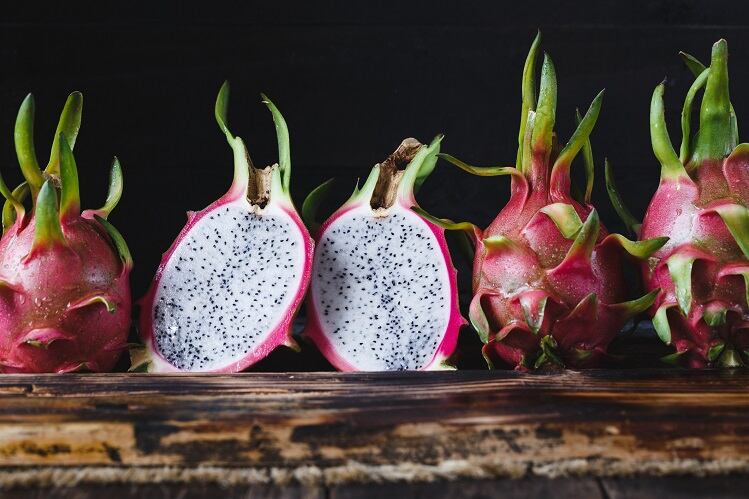Supplementation of dragon fruit oligosaccharides as a dietary supplement may promote gut health and correct gastrointestinal motility disorders. In other words, ingesting powdered dragon fruit oligosaccharides may help stimulate ‘easy-to-pass’ bowel movements, argued researchers from the Prince of Songkla University and Mahidol University in Thailand.
“[We] found that dietary supplementation with dragon fruit oligosaccharide [in mice] accelerated upper gut transit, which reduced travel time of the content to the colon and also reduced total gut transit time,” they wrote in their report, recently published in Biomedicine & Pharmacotherapy.
One of the study’s co-authors, Dr Santad Wichienchot, had previously studied the digestive health benefits of dragon fruit oligosaccharide powder in an artificial colon on a petri dish.
In that in vitro study, published in 2010, Dr Wichienchot and team found that the powder stimulated the growth of certain lactobacilli and bifidobacteria, all of which have been linked to human gut health benefits.
The present in vivo study in mice hinted not only on the dragon fruit powder’s link to gut bacteria count, it also correlated to a bulk-forming laxative effect, in which water is absorbed from the intestinal lumen to increase fecal mass.
Study details and results
The researchers used white-fleshed Hylocereus undatus dragon fruits grown in Thailand, selected from one batch to ensure consistency of chemical composition, particularly the oligosaccharide content.
Mice were divided into six groups with either just distilled water (a control group); with dragon fruit oligosaccharides at 100, 500, or 1,000 mg/kg; or with fructo-oligosaccharide at 1,000 mg/kg; or with Bifidobacteriaum animalis at 109 colony forming units (CFU) daily for one week.
Gastrointestinal transits were analyzed and motility patterns, smooth muscle contractions and morphological structures of the colons were assessed.
Pitaya in protein powder?
In its Flavors of the Future report, flavor company Synergy Flavors dubbed pitaya (or dragon fruit) as one of the growing flavors for Latin American sports nutrition product developers.
They found that fructo-oligosaccharide, as well as the dragon fruit oligosaccharide at 500 and 1,000 mg/kg “significantly increased fecal output when compared to the control group.”
The dragon fruit group also exhibited increased number of colonic non-propagation contraction snad fecal pellet velocity, consistent with the results from the groups treated with fructo-oligosaccharides and bifidobacteria.
Furthermore, in mice treated with fructo-oligosaccharide and bifidobacteria, gut transit time was reduced, while upper gut transit was increased in comparison to the dragon fruit groups.
An important emerging crop in Latin America
Dragon fruit, which come from cacti of the genus Hylocereus, is native to Central and northern South America. Though the world leader of dragon fruit is Vietnam, where revenues from this fruit make up 55% of the country’s fruit export turnover, many Latin American countries are leading producers for specific cultivars of dragon fruit.
Nicaragua is the primary producer of Hylocereus sp. In Central America, while Colombia is the primary producer of the cultivar Selenecereus megalanthus, according to data from the Agricultural Marketing Resource Center.
Source: Biomedicine & Pharmacotherapy
Published online ahead of print, doi.org/10.1016/j.biopha.2019.108821
Prebiotic oligosaccharides from dragon fruits alter gut motility in mice
Authors: Pissared Khuituan, et al




